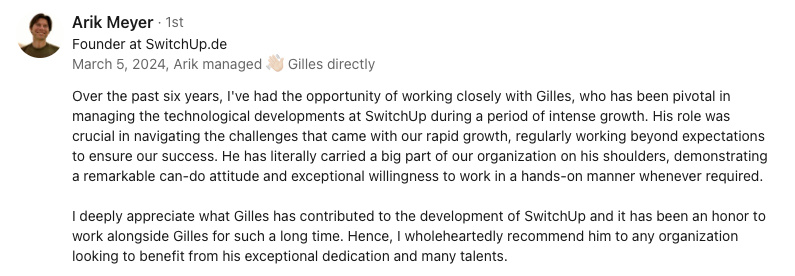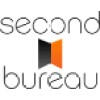Abstract:
As the landscape of the workforce continues to shift due to technological advancements and changing business needs, professionals must adapt by acquiring new skills. Essential skills for tomorrow's workforce include digital literacy to navigate and leverage emerging technologies, critical thinking for solving complex problems, and emotional intelligence to manage and lead diverse teams effectively. Additionally, the ability to learn and adapt continuously, a knack for innovation, and strong collaboration abilities will be indispensable. These skills not only enhance an individual's employability but also ensure they can thrive in a dynamic and often unpredictable work environment. For leaders, understanding and fostering these skills within teams will be crucial for sustained success and organizational resilience in the face of future challenges.
Introduction to the Changing Workforce Landscape
Let me share a telling moment from a recent board meeting where a seasoned finance manager grappled embarrassingly with a new analytics platform—his traditional Excel prowess was no match for the agile, data-driven tools of today. It wasn't just an awkward episode; it underscored a critical call for adaptability in skills as workplaces transform drastically.
The narrative of job roles is being rewritten by swift technological advances and shifting business models. As I navigate my tenure as a Chief Technology Officer, I've witnessed first-hand the dynamic alteration in what defines competency. It's no longer sufficient to lean on old laurels; the workforce must lace up to sprint alongside perpetual innovation and unpredictable market flux. This speed and uncertainty of change invariably places stress on yesterday’s skill sets, making them obsolete quicker than one can learn them.
We're not just talking about learning to use the latest software or dabbling in coding basics—no, it's deeper. It's about cultivating a mindset that thrives on change, absorbs knowledge like a sponge, and flexes with shifting trends. The upcoming sections will explore these essential skills that are becoming non-negotiable in the toolkit of any forward-looking professional. So, buckle up as we unpack these necessities; it's not merely about keeping pace but setting the velocity for others to match!
In-depth Review of Essential Skills for the Future
With the constant evolution of the workforce, it's crucial to not just keep up but to stand out. As a Chief Technology Officer observing abrupt shifts in skill demands, I've plucked out several core capabilities that any savvy professional should hone for tomorrow's challenges. Let’s peel back the layers on these vital skills and sprinkle in some real-world spice to see why they matter.
Digital Literacy: Mastering the New Tools of the Trade
First and foremost, the broad umbrella of digital literacy. It’s not only about knowing your way around a computer. Whether it’s blockchain in finance, AI in healthcare, or IoT in manufacturing, technological adeptness is becoming a linchpin in nearly every industry. To illustrate, consider a marketing professional who leverages data analytics to predict consumer behavior and increase engagement—this isn’t just impressive, it’s becoming essential. To foster this skill:
- Engage regularly with new software and platforms.
- Take online courses in emerging technologies relevant to your field.
- Participate in tech forums or discussion groups to stay updated on the latest innovations.
Critical Thinking: The Art of Problem Solving
Now, let's chat about critical thinking—our secret sauce to navigating complex challenges. It’s the skill that helps us dig through data, anticipate pitfalls, and make decisions with confidence. Recall a scenario where a tech leader had to decide whether to scale an application; using critical thinking, they assessed not only the technical requirements but also the strategic business implications. Strengthening this competency involves:
- Practicing structured problem-solving techniques.
- Engaging in brainstorming sessions to tackle hypothetical business scenarios.
- Learning from past decisions and exploring alternative outcomes.
Emotional Intelligence: Leading with Empathy
Moving to the emotional intelligence front, this is where leadership meets heart. Leading diverse teams effectively amidst fast-paced changes demands a leader who can listen, inspire, and motivate. Picture a project manager coordinating a multinational team; their ability to navigate cultural nuances and interpersonal dynamics can make or break the project’s success. To enhance your emotional quotient:
- Actively listen and respond to team feedback.
- Practice mindfulness and self-regulation to manage stress and model resilience.
- Participate in leadership training focusing on empathy and inclusivity.
Continuous Learning: The Lifelong Pursuit of Knowledge
Where would we be without the zest for continuous learning? The tales are numerous of professionals who pivoted their careers by embracing new learning curves. Take, for instance, a finance expert who transitioned to fintech by mastering new tools and languages; their journey is a testament to lifelong learning. To keep your knowledge ever-fresh and relevant:
- Set personal learning goals aligned with industry trends.
- Attend workshops, seminars, and conventions in your field.
- Subscribe to relevant journals and publications to absorb new knowledge continually.
Innovation and Collaboration: Twin Pillars of Modern Project Success
Last but not least, the dual delights of innovation and collaboration. They’re about pushing boundaries through teamwork. Consider a tech firm that redesigned its product development lifecycle by fostering a collaborative environment where innovative ideas thrive. The results? Faster time-to-market and broadened creative insight. Here’s how to cultivate these skills:
- Encourage open dialogue and idea sharing within your team.
- Participate in cross-functional projects to gain diverse perspectives.
- Implement regular brainstorming sessions with a focus on creative outcomes.
As we thread through these evolving skill sets, the key takeaway is clear: it's about much more than just keeping up—it’s about leading the way in a world where change is the only constant. So here's to sharpening these skills and embracing the future with readiness and confidence!
Summary Points and Insights for the Future
As we wrap up our exploration of essential skills for tomorrow’s workforce, let’s revisit the critical competencies we've discussed. From digital literacy to emotional intelligence, and from critical thinking to continuous learning, each skill is a strong thread in the fabric of modern employability. These aren’t just nice-to-haves; they are must-haves for anyone aiming to thrive in dynamic work environments.
Why does this matter? Well, imagine a professional who can navigate the complexities of new technology, solve intricate problems under pressure, and continuously adapt to new information—all while leading a team with empathy and vision. This is the kind of superhero employee that organizations are seeking. Not only do these skills enhance individual employability, but they also form the cornerstone of robust business practices that can weather the storms of market volatility and technological upheaval.
Leadership's Role in Skill Development
As a Chief Technology Officr who’s been at the helm during both smooth sailings and turbulent seas, I’ve learned that cultivating these skills within a team isn’t just beneficial—it’s imperative. Leadership is not about commanding from an ivory tower; it's about getting into the trenches and helping your team develop these capabilities. This involves creating opportunities for team members to practice problem-solving, encouraging participation in continuous professional development, and fostering an environment where innovation through collaboration is the norm.
Empowering your team with these skills does more than just prepare them for future challenges. It builds a foundational resilience within your organization, turning potential vulnerabilities into staunch strengths. When each member of the team is equipped to handle changes and complexities, the organization as a whole becomes more adaptable and ready for whatever the future holds.
Embracing the Future with Confidence
Looking ahead, the question isn’t if the requisite skills will continue to evolve—because they most certainly will—but how we can stay ahead of that curve. The answer lies in our commitment to lifelong learning and adaptability, both as individuals and as enterprises.
To conclude, consider this thought-provoking insight: “Change is the only constant in life. Ones who look only to the past or the present are certain to miss the future.” This quote, often attributed to John F. Kennedy, encapsulates the essence of our discussion. It challenges us to reflect on how prepared we are to meet the demands of the future, not just as professionals but as continual learners.
So, as we face forward, let us carry with us the lessons learned and the competencies sharpened. And remember, it's not merely about navigating the future; it's about shaping it. Are you ready to lead the charge?





